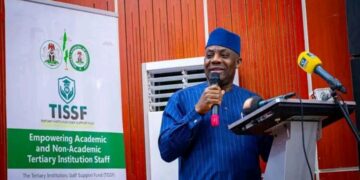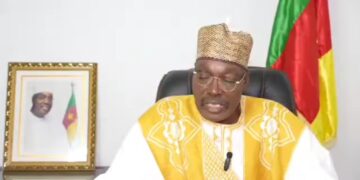![]()
Former Minister of Communications, Dr. Adebayo Shittu, has thrown his support behind the Nigerian Communications Commission (NCC) over its proposed 50% increase in telecom tariffs, arguing that the hike is essential for economic sustainability.
Speaking in an exclusive interview on Eagle 102.5 FM’s current affairs programme, Frontline, Shittu dismissed the debate surrounding the tariff increase, stressing that telecom operators cannot be expected to maintain prices at the same level for over a decade while other sectors have witnessed multiple price hikes.
“Nigeria is a very difficult country, and a lot of times, Nigerians don’t want to listen to the truth. The truth is always bitter. When I was in office, I was scandalized by people who expected telecom companies to provide free services,” Shittu stated.
He recalled a time when Nigerians struggled to access telecommunication services, noting that the arrival of telecom companies changed the landscape. “When telecom companies were invited, we didn’t invite them to provide Father Christmas services. We invited them to do business, make profits, and improve communication services for Nigerians,” he said.
Shittu highlighted how telecom services in Nigeria remain cheaper than in neighboring countries, citing the cost of SMS as an example. “As at the time we were paying N4.00 for every SMS, Benin Republic paid the equivalent of N50.00, while Algeria paid N150.00,” he explained.
He argued that recent economic changes, including fuel subsidy removal and inflation, have driven up the cost of maintaining telecom infrastructure. “Do we expect the telecoms to collapse? If they are unable to sustain their operations, they will simply shut down, and Nigeria will return to point zero, where we had no telecom services,” he warned.
According to Shittu, telecom operators face rising expenses due to mast construction, power supply challenges, and security costs. “When I was in office, constructing a mast cost over N40 million. Today, it is over N100 million. Many areas lack electricity, so telecom firms must buy generators and fuel them. Security is another issue—they pay heavily to protect their infrastructure because the government cannot provide adequate security,” he elaborated.
Reacting to the planned February 4 industrial action by the Nigeria Labour Congress (NLC) against the tariff hike, Shittu described it as unnecessary. “With due respect to the NLC, there is no point making workers overly active in protests, especially when there is no sufficient rationale. Why can’t they protest against the rising cost of food in the markets instead?” he questioned.
It would be recalled that the NLC had earlier proposed a 5% telecom tariff increase instead of the NCC’s approved 50% hike. On Friday, January 31, 2025, the labour body also instructed its affiliate unions and state councils to fully mobilize for a nationwide mass protest on February 4 against the proposed tariff increment.
While defending the telecom operators, Shittu urged the government to implement policies that would ease the economic burden on Nigerians. “The government must find ways to bring relief to citizens, but holding telecom companies hostage is not the solution,” he said.

























